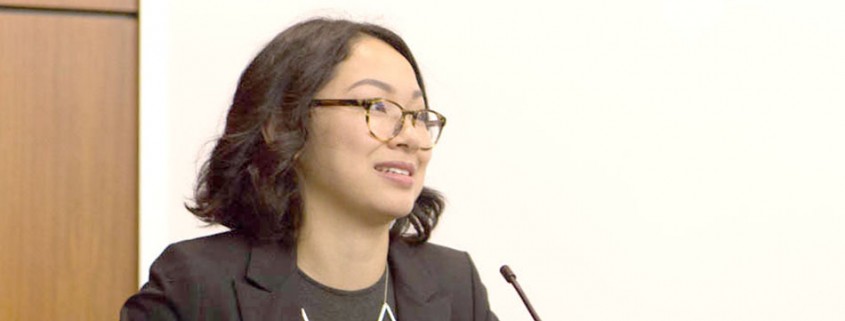EdMonth event focuses on ethnic studies
Diversity in USC curricula, the recent Campus Climate Resolution and the proliferation of cultural appropriation were topics at the forefront of Tuesday’s EdMonth event, “ReclaimED: Why We Need Ethnic Studies.” The event, which consisted of a panel of speakers and was open to students and faculty across campus, was sponsored by the Undergraduate Student Government Program Board as part of a month-long discussion series on relevant topics, from social justice to mental health.
Sophia Li, a member of the Asian Pacific American Student Assembly executive board and the organizer of the event, opened the discussion by presenting examples of cultural appropriation in Halloween costumes, in which students dressed up as Native Americans or painted their faces to imitate black skin color. According to Li, these practices devalue the cultural history and identity of these ethnicities and is one illustration of why ethnic studies is important.
“I feel like cultural appropriation has become a buzz phrase,” Li said. “It boils down to when members of a dominant culture take elements from a culture of people who have been systematically oppressed. When people who have been marginalized or oppressed are reduced to a sentence in a textbook or only one narrative, this lack of cultural awareness is a big part of what leads to cultural appropriation.”
Li defined ethnic studies as “the interdisciplinary study of power, race, ethnicity, gender, sexuality and nationality,” and emphasized its importance in redefining the traditional narratives of different ethnicities by looking at history and culture from the perspective of marginalized peoples. According to Li, the discipline grew out of the Civil Rights Movement of the 1960s, but has come under attack in recent years in states such as Arizona, which banned certain aspects of diversity education in public schools in 2010.
Panelist Brianna Thorpe, director of USG Community Affairs, explained that despite establishing a diversity requirement for all incoming freshmen, USC has not done enough to promote ethnic studies among students. According to Thorpe, learning about other cultures is essential for all students, but especially for minorities who have so far learned little about their history.
“It’s important to understand where you’ve been as a people and where you’re going as a people,” Thorpe said. “Without that, you can’t take pride in the things that your specific group has gone through. I think it’s an empowerment tool. It gives us the things that we need to grow and be successful.”
Proposed solutions, including the recent USG Campus Climate Resolution, have attempted to implement greater diversity curriculum, which Thorpe said would help students receive enough information to engage in dialogue and formulate opinions.
“The campus climate resolution calls for more of a holistic approach; what it really wants is an integrated form of ethnic studies,” Thorpe said. “Instead of pigeonholing diversity into one area or one class, it calls for interdisciplinary work to be done.”
Panelists then took turns talking about some of the issues with diversity, discrimination and academics that USC and other universities face, starting with the move away from humanities courses. Viet Thanh Nguyen, an associate professor and interim chair in the Department of American Studies and Ethnicity, explained that over the past decades, enrollment in Dornsife College of Letters, Arts and Sciences has decreased, resulting in fewer students being exposed to courses focusing on ethnicity and diversity.
“These courses are useful because they allow you to cultivate a critical and oppositional consciousness,” Nguyen said. “They allow you to connect the dots that people don’t want you to connect.”
Ultimately, Nguyen and the other panelists hoped that students and the University would do more to promote ethnic studies on campus and elsewhere. Moira Turner, the director of USG Diversity Affairs, stressed its practical impact for students of all races, ethnicities and sexual orientations.
“Life is diverse,” Turner said. “We shouldn’t show diverse perspectives as an add-on. We should show them because that’s reflective of what life actually is.”

